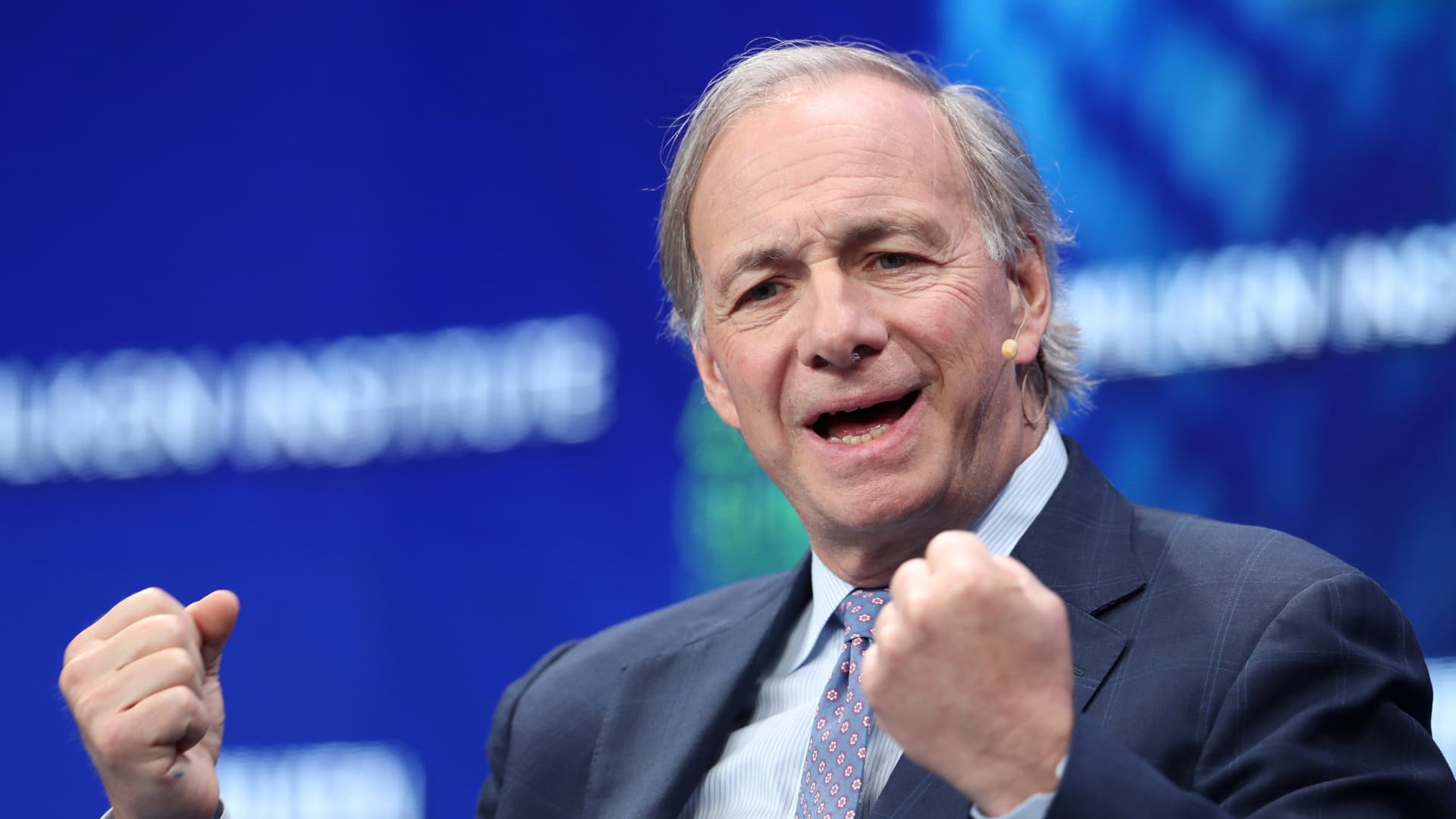Products You May Like
Before billionaire investor Ray Dalio built the world’s largest hedge fund, he went broke.
On a recent episode of actor Dax Shepard’s “Armchair Expert” podcast, Dalio said he nearly tanked hedge fund Bridgewater Associates less than 10 years into running it: After incorrectly predicting that the world market would crash in 1982, Dalio lost investors, clients and a lot of money.
Nearing bankruptcy, Dalio said, he had to borrow $4,000 from his father to support his growing family. “[It] was very, very painful, yet it changed my way of thinking,” he said. “It was one of the best things that ever happened to me.”
Dalio said the brush with bankruptcy forced him to learn how to accept his mistakes with humility, taking accountability for his own weaknesses. In 2019, he wrote about that struggle for CNBC Make It, noting: “I needed to balance my aggressiveness and shift [my] mindset from thinking ‘I’m right’ to asking myself, ‘How do I know I’m right?'”
On the podcast, Dalio said he also realized that he could better calculate risks — and whether or not he should take them — by hiring people who thought differently than he did. “It taught me to find the smartest people I could find, who disagree with me to stress-test my thinking and hear their points of view,” he said. “It taught me radical open-mindedness.”
Adam Grant, an organizational psychology professor at the Wharton School of the University of Pennsylvania, noted in his 2016 book “Originals” that Dalio frequently received emails from Bridgewater employees holding him accountable for his mistakes. In fact, Grant wrote, employees could “be fired for failing to challenge the status quo.”
Dalio, who stepped down as Bridgewater’s CEO in 2017, may have been ahead of the curve: Research shows that that “diversity of thought” can give companies a significant competitive advantage.
Indeed, Dalio’s stewardship of Bridgewater following his near-bankruptcy experience helped him become one of the world’s richest people. Today, he has a net worth of $22 billion, according to Forbes. And he credits much of his success to that singular lesson: Learn from your mistakes.
“If I have a painful experience, I view it as a puzzle,” Dalio said on the podcast. “And if I solve the puzzle – which is, ‘How does reality work, and how would I deal with it better in the future?’ – I will get a gem. That gem is some principle, which I will literally write down and say, ‘OK, now I’m going to do that thing [differently] in the future.'”
Sign up now: Get smarter about your money and career with our weekly newsletter
Don’t miss:
Jim Cramer’s advice for how to invest during a recession: ‘There’s always a bull market somewhere’
